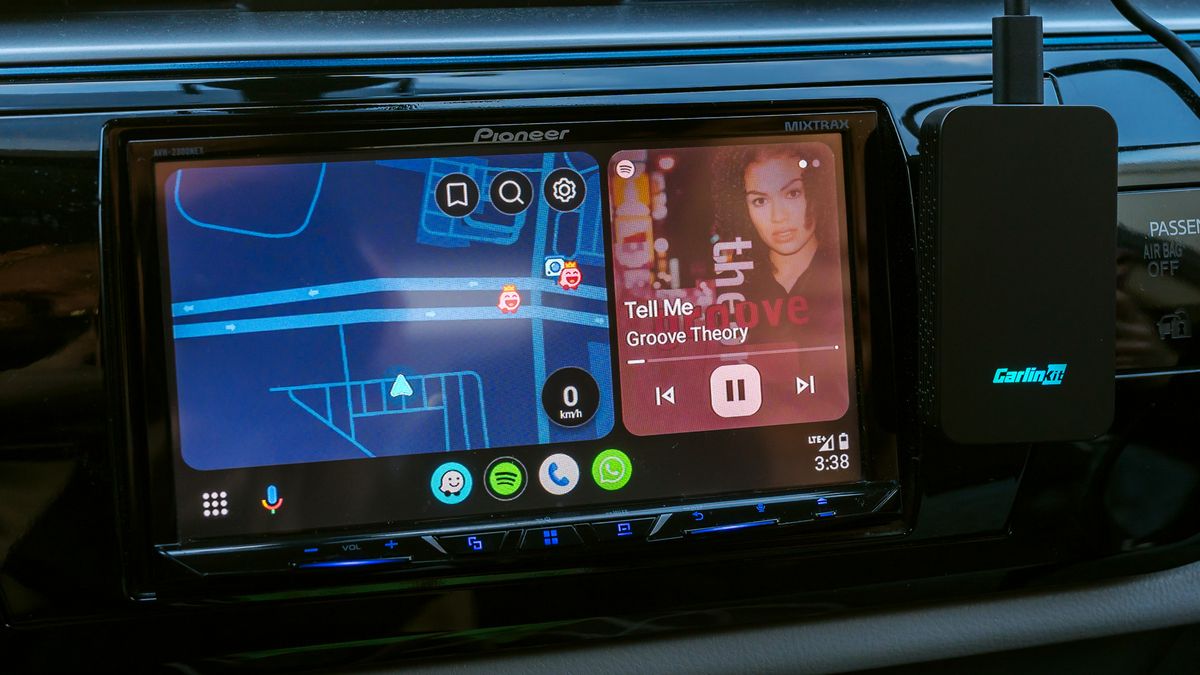Shopping around for a newer vehicle — especially one that comes with Android Auto — usually means you get to enjoy running it wirelessly. There are still a lot of vehicles without that luxury, which is why there’s been a steady stream of adapters and dongles to bridge the gap.
Carlinkit is one such brand that’s been doing it for a while. Hence, the Carlinkit 5.0 (2air) is a successor to previous models, each one designed to be simpler and smoother than the last.
Plugging this in the first time means you should be up and running every time you turn on the ignition thereafter. Is that how it turns out? It only takes a few trips to find out.
Cutting the cord
The Carlinkit 5.0’s simplicity is obvious once you unbox it. It’s just the adapter itself with two cables, one USB-C-to-USB-C and one USB-C-to-USB-A, ensuring you can connect to your car regardless of which USB port it has. You could be a little confused since the adapter also has both USB-C and USB-A ports, except the latter is meant for updating the device. More on that later.
Once you first bring it into your vehicle, you only need to plug it in after turning on the ignition. Built-in LEDs behind the Carlinkit logo on the unit indicate status, with pink showing up and flashing blue indicating the adapter has power. It then turns solid pink during the setup phase.
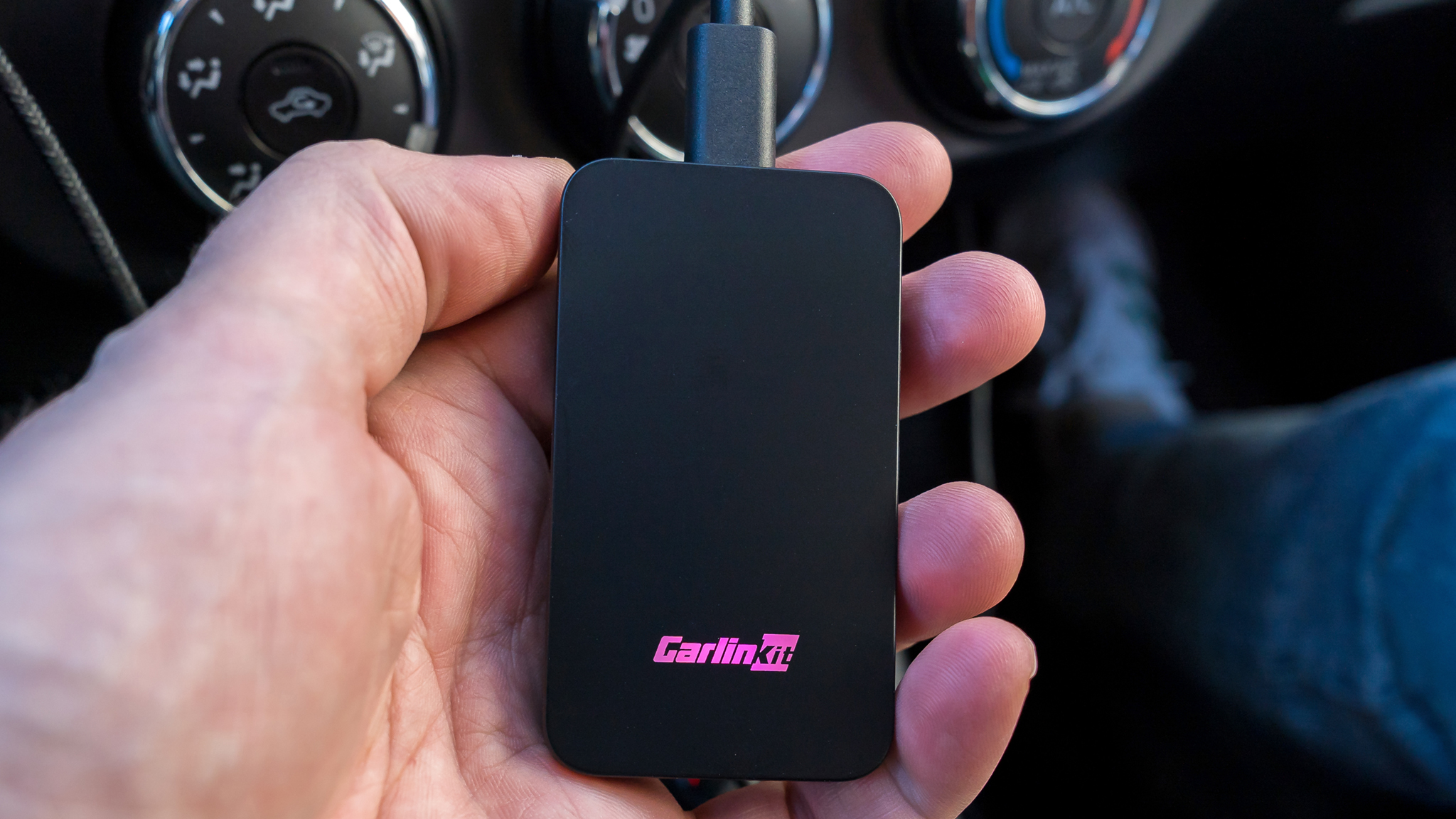
The included manual has instructions for setting up Android Auto and Apple CarPlay, though both generally follow the same type of sequence. The Carlinkit unit should appear in your phone’s Bluetooth menu (as “AutoKit” or something similar). Select it to start the pairing process and it will work in the background to establish the connection.
It flashes blue as it works to do so but you’ll only know that pairing was successful when you see Android Auto pop up on your infotainment screen. If you’ve set up Android Auto from your phone before — even if you used another dongle/adapter like this — you shouldn’t have to go through the introductory setup. It literally picks up where you left off the last time you connected.
Subsequent connections usually see the platform appear on your vehicle screen in about 10 seconds, though I’ve found that isn’t a hard and fast rule with this device. There were times when it took mere seconds to do it, and others where it seemed to struggle a few times before finally making it happen.
Driving solo and cable-free
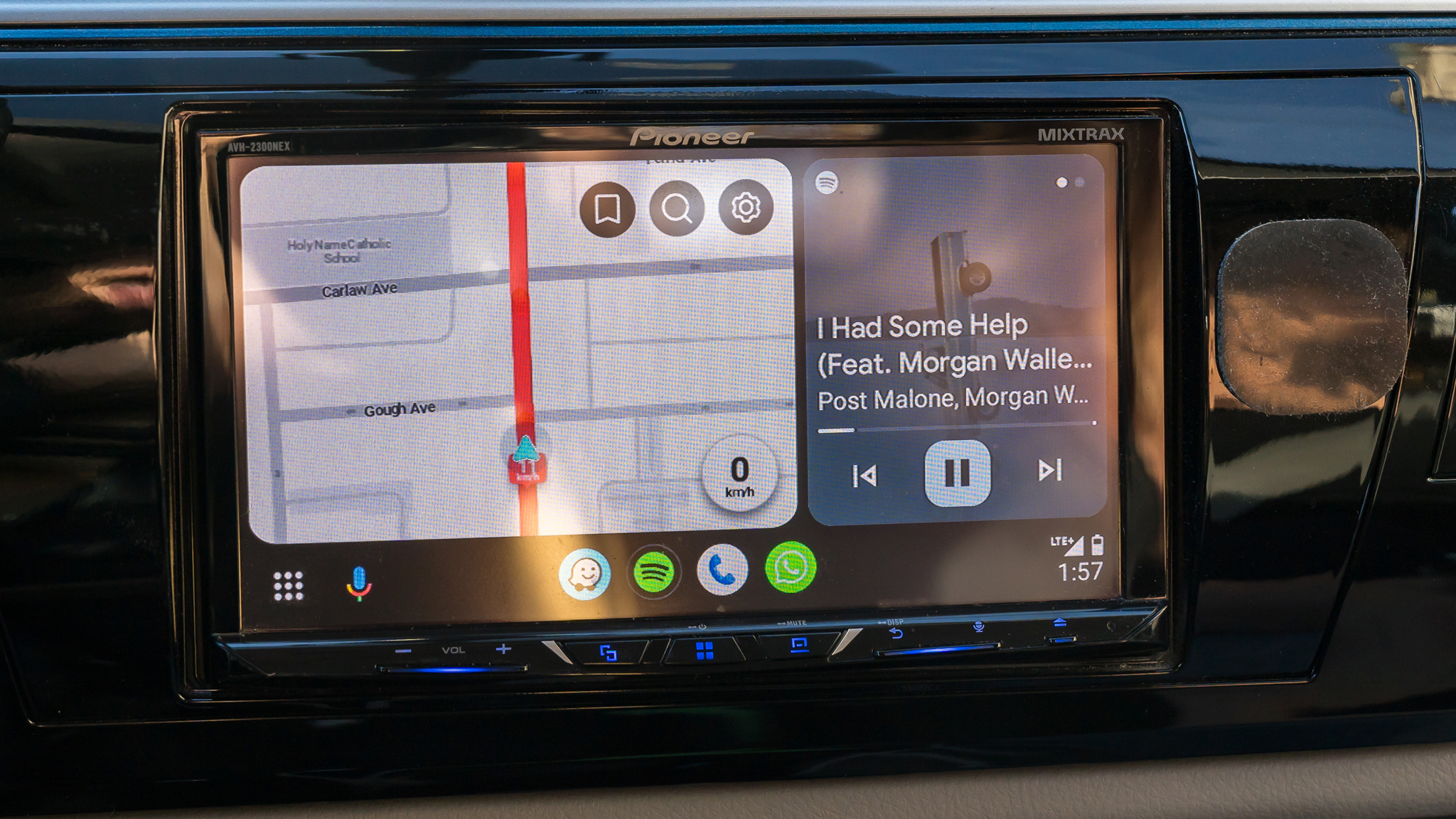
More often than not, Carlinkit 5.0 does its singular job well. You get in the car, start it up, and eventually carry on with whatever content you were listening to before you got in. If you’ve never experienced wireless Android Auto for yourself, the liberating feeling is immensely satisfying, even more so because you don’t lose the platform’s integration while also letting you wirelessly charge your phone if you’re using a dock supporting the feature.
Whether streaming music, making phone calls, getting a route in Waze, or talking to Google Assistant, this adapter doesn’t make any of those features feel difficult. Once it connects, it stays connected. On top of that, it remains steady in that it’s not all that buggy, either.
The problem is when it doesn’t necessarily connect properly, it becomes obvious. There may be false starts or intermittent cutouts, the latter of which I attribute to bad reception because it’s happened to numerous wireless Android Auto dongles I’ve tested.
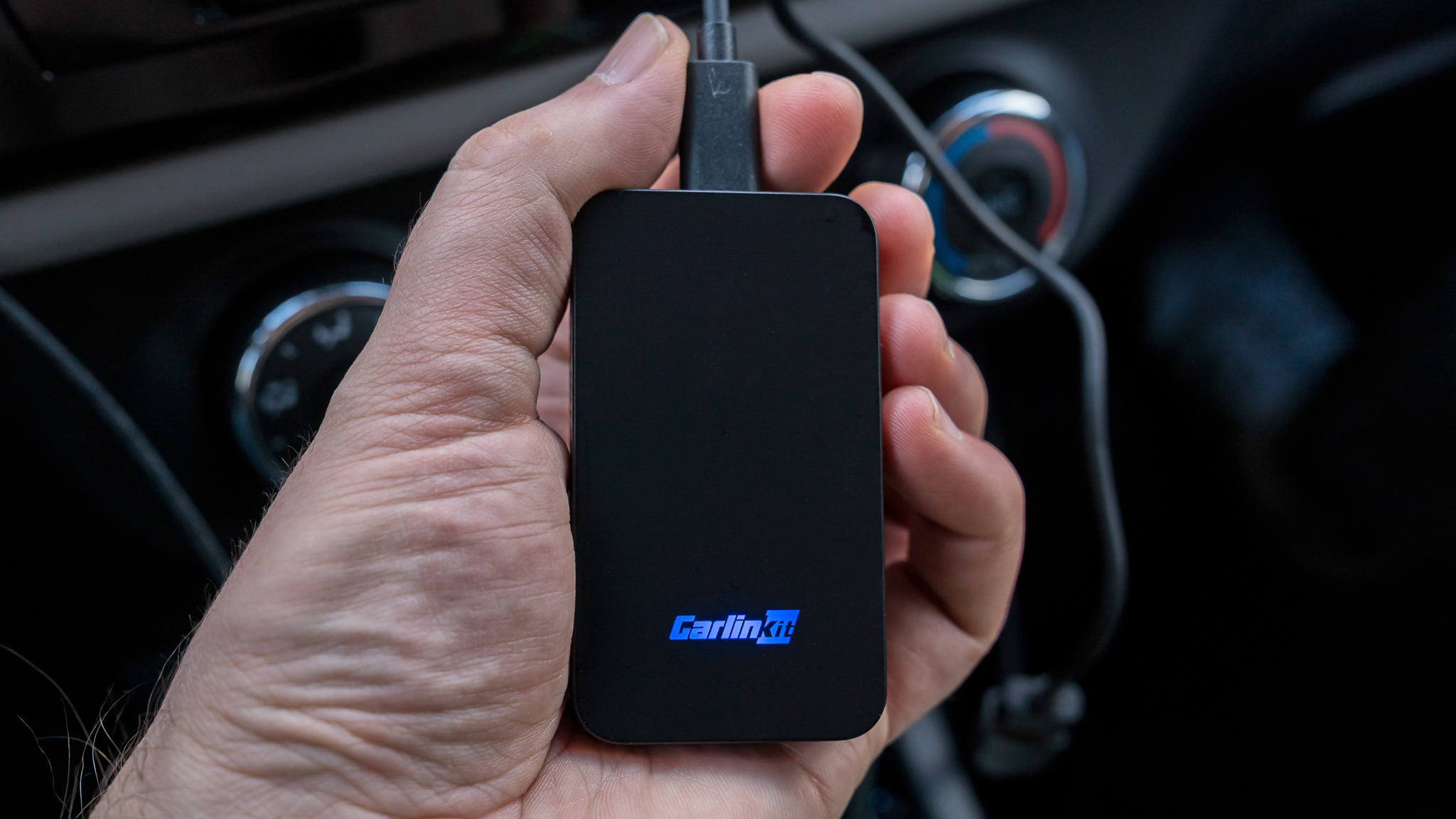
There are also some other caveats along the way that can prove challenging. If you share the vehicle with a spouse or partner, they may run into trouble trying to connect to the device, and Carlinkit’s poor documentation and instructions don’t really add a lot of confidence. That can happen whether they’re using Android Auto or CarPlay.
Carlinkit 5.0 doesn’t offer a seamless way to switch users the way certain others do, like Carsifi or AAWireless, for instance. It’s not that you can’t, but to do it, the one who first connects has to disconnect the Bluetooth connection and let the other connect in order to make it work. It’s clunky and not exactly ideal.
You also have the benefit of firmware updates to keep the adapter current, albeit without a clearer path to install them. I’m nitpicking here, but I’m doing so because I can see where users who aren’t as savvy with these types of devices might feel lost. There is no Carlinkit app on the Play Store, forcing you to run through a process of connecting to the device’s Wi-Fi signal and typing in an IP address (noted in the manual) in your phone browser to find and install the update. It’s worth doing because updates do come out, but it won’t feel smooth.
Simply getting the job done
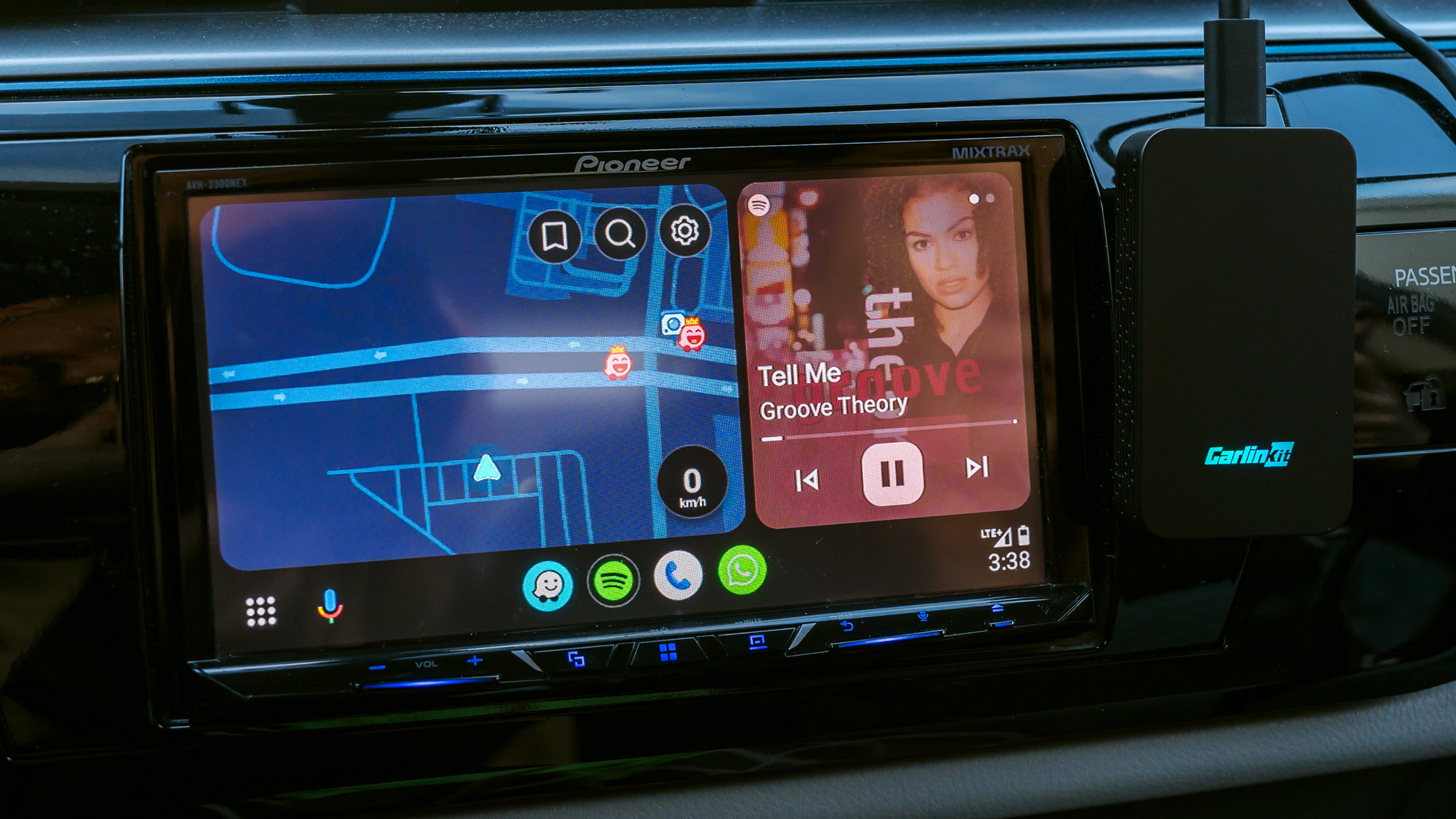
The Carlinkit 5.0 (2air) has a regular price of $90 but you’ll often find it selling for less online. At its discounted price, it’s hard to argue with the role it plays, particularly if your needs and expectations are fairly basic. When you just want to cut the cord and go wireless running Android Auto, this gizmo can cover that well.
The rest of the experience is partly hindered by the confusing manual. Carlinkit would establish some trust with consumers if it suggested updating the firmware as one of the first moves to make upon setting it up. An app would then make the update process far smoother than it currently is. Put those things in place, and there’s very little to find fault with on this thing.
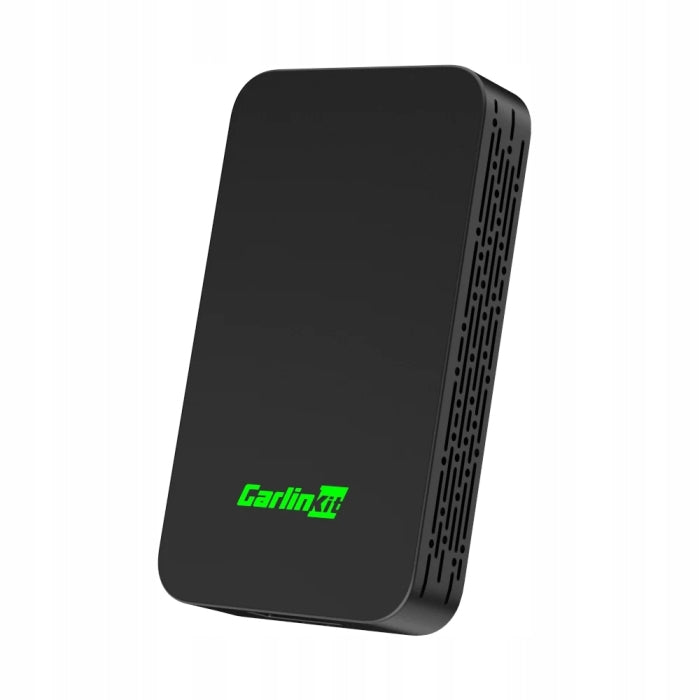
Hook me up
The Carlinkit 5.0 (2air) is an adapter that enables a wireless Android Auto connection in your vehicle. It does the job soundly after first setting it up, though updating the firmware is where things feel clunky.
